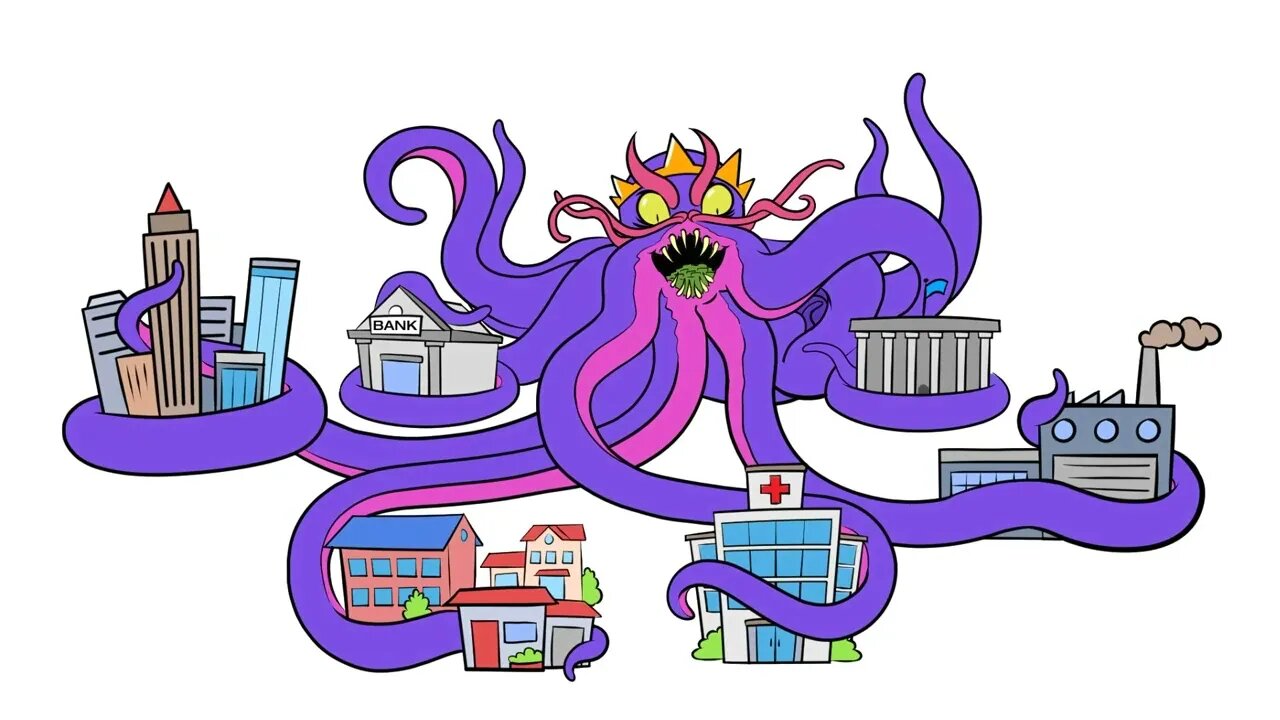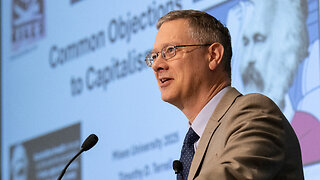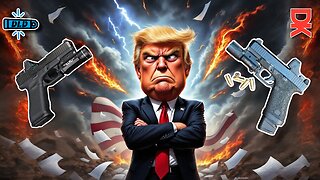Premium Only Content

The Consequence of Politicized Money
Often when we talk about inflation, what comes to mind is increased prices—but the consequences of politicizing money go far beyond what we see when making a purchase. Money is not simply a unit of account but is the lifeblood of the economy; manipulating it for political ends has ramifications that many will never understand—but are no less important for that.
The government's control over the production of money increases its control over the real resources in society. When inflation occurs, it does not happen evenly—like boats floating on rising water. There are winners and losers in an inflationary environment, and many of the criticisms about the consequences of "capitalism" can be traced back to the socialization of money.
As we've noted, the first winner in inflation is government—it increases the resources they can control without their having to increase taxes. This allows government to spend more than they otherwise would, which is why we've seen exponential increases in government projects, foreign wars, and welfare programs the more government has taken control over money.
The next winner is big banks, which central banks use to conduct money. In 2008, it was the Federal Reserve that purchased most of the bad debt from big banks, bailing them out for their bad decisions at the expense of everyone else who holds dollars.
But those aren't the only winners. The closer individuals or businesses are to the creation of new money, the more they benefit. So, if big banks desire to focus their investment on technology, for example, Big Tech firms win as well. And in fact, some major tech companies—Uber, Spotify, and Snapchat—have never been profitable on the market, but they continue to grow because they have access to cheap debt—subsidizes by Federal Reserve policy.
When one sector benefits from politicized money, other industries may be hurt—and not simply because of inflation. For example, in the 2000s, Federal Reserve policy subsidized the housing bubble that created a financial crisis. With the housing construction industry benefitting from monetary policy, it attracted workers away from sectors that use similar workers, like manufacturing. Pundits often ignore these secondary consequences, but a good economist looks at both the "seen" and the "unseen."
There are cultural consequences as well. When central banks push interest rates low, this changes the cost of money and encourages spending now while discouraging saving for the future. It impacts society's time preference. Since 2008, with interest rates near zero, Americans have received very little in interest if they saved money in a traditional bank account, but were rewarded for investing in the stock market. The result is more Americans owning risky financial assets rather than having dependable savings.
This disconnect between financial markets and real production has created an economy grounded in "financialization." The result has been major gains in the financial services industry but declining purchasing power among American workers. While many Americans claim to be concerned about rising income inequality, few connect this issue to one of its major causes—giving government bureaucrats complete control over the money. No one has benefitted more since Nixon closed the gold window in 1971 than the wealthiest 1 percent of Americans.
In recent years, concerns about the abuses of the Federal Reserve—and other central banks—have sparked innovation in money, notably cryptocurrencies. In our next video, we will look at what private money may look like in the future—and how governments may try to stop it.
________________________________________
This series was inspired by Murray Rothbard's classic introduction, What Has Government Done to Our Money?—available for free in PDF, ePub, HTML, and Audiobook at https://Mises.org/WHGD
To learn more about the operations of the Federal Reserve, check out Bob Murphy's book, Understanding Money Mechanics, available for free in PDF, ePub, and HTML at https://Mises.org/BobMoney
For more animated content, check out Economics for Beginners at https://BeginEconomics.org.
-
 45:02
45:02
Mises Institute
1 month agoObjections to Capitalism | Timothy D. Terrell
1221 -
 LIVE
LIVE
The Connect: With Johnny Mitchell
10 hours ago $0.05 earnedSecrets Of The Cocaine Cowboys: Miami Drug Lord Reveals Truth About His BILLION-DOLLAR Coke Empire
525 watching -
 LIVE
LIVE
BlackDiamondGunsandGear
1 day agoGlocks Want Gun Control? // Trump Tramples on your Rights? // After Hours Armory
166 watching -
 LIVE
LIVE
DLDAfterDark
6 hours ago $0.01 earnedDLD Live! Trump - Flag Burning - Glock & Gun Control - Martial Law Light?? - After Hours Armory
103 watching -
 LIVE
LIVE
GritsGG
12 hours agoRumble Customs! 3515 Ws! 🫡!
271 watching -
 5:59:47
5:59:47
SpartakusLIVE
7 hours agoThe HUGEST Brain (not forehead) delivers Saturday SPARTOONS || Variety Later - Shadow of Mordor
176K4 -
 2:34:20
2:34:20
Barry Cunningham
8 hours agoPRESIDENT TRUMP WELCOMES FOOTBALL SEASON! AND MORE BREAKING NEWS!
63.6K38 -
 54:47
54:47
Side Scrollers Podcast
12 hours agoSide Scroller Presents KING OF THE KART | MASSIVE MARIO KART TOURNAMENT
35.9K -
 4:12:33
4:12:33
Mally_Mouse
12 hours ago🔥🍺Spicy HYDRATE Saturday!🍺🔥-- Let's Play: Baldur's Gate!
30.4K1 -
 2:26:32
2:26:32
BooniesHQ
7 hours agoGame Of SKATE Shaun Hover Vs. Jeff DeChesare: Boonies Skate Night 1
105K5